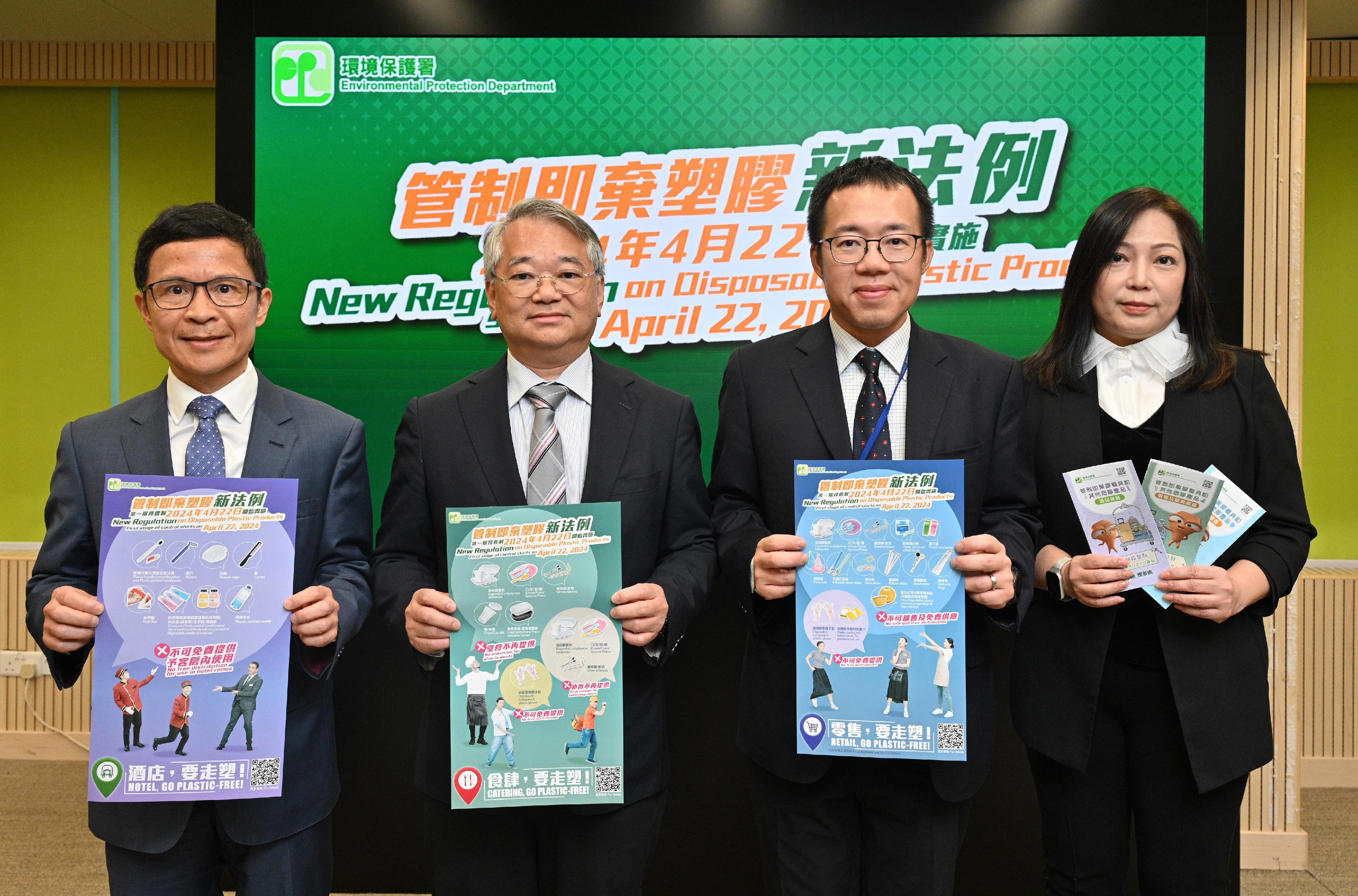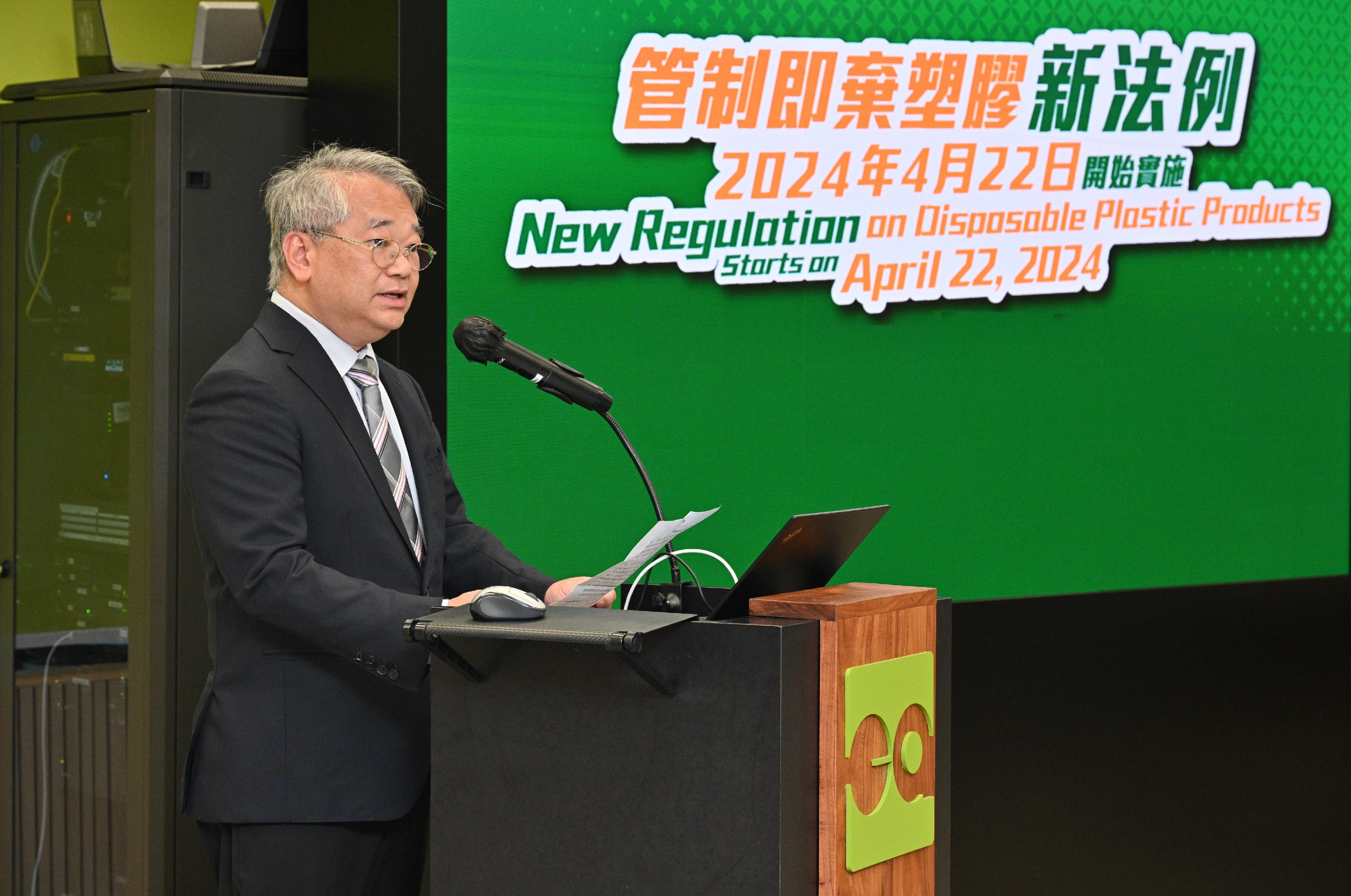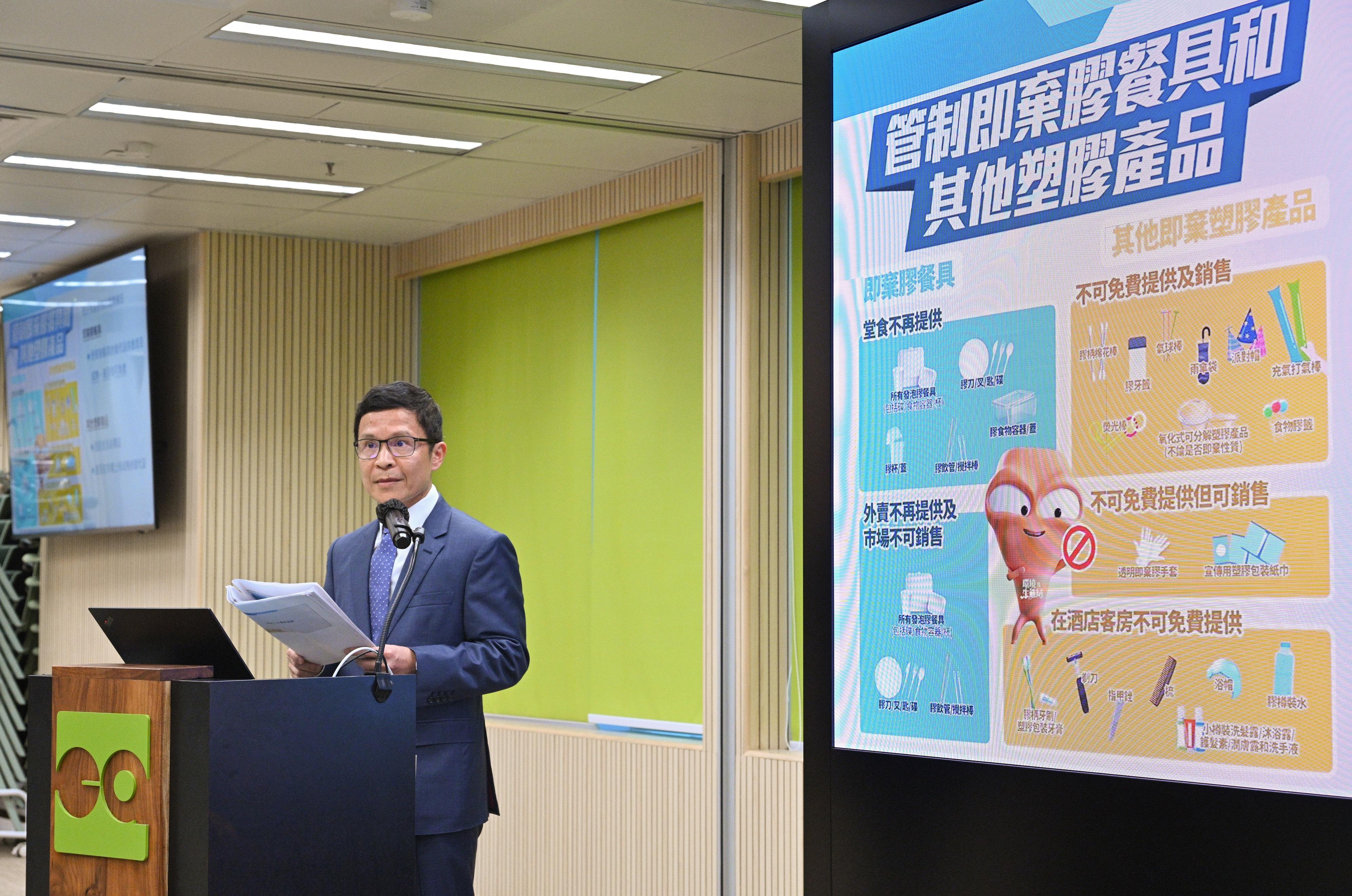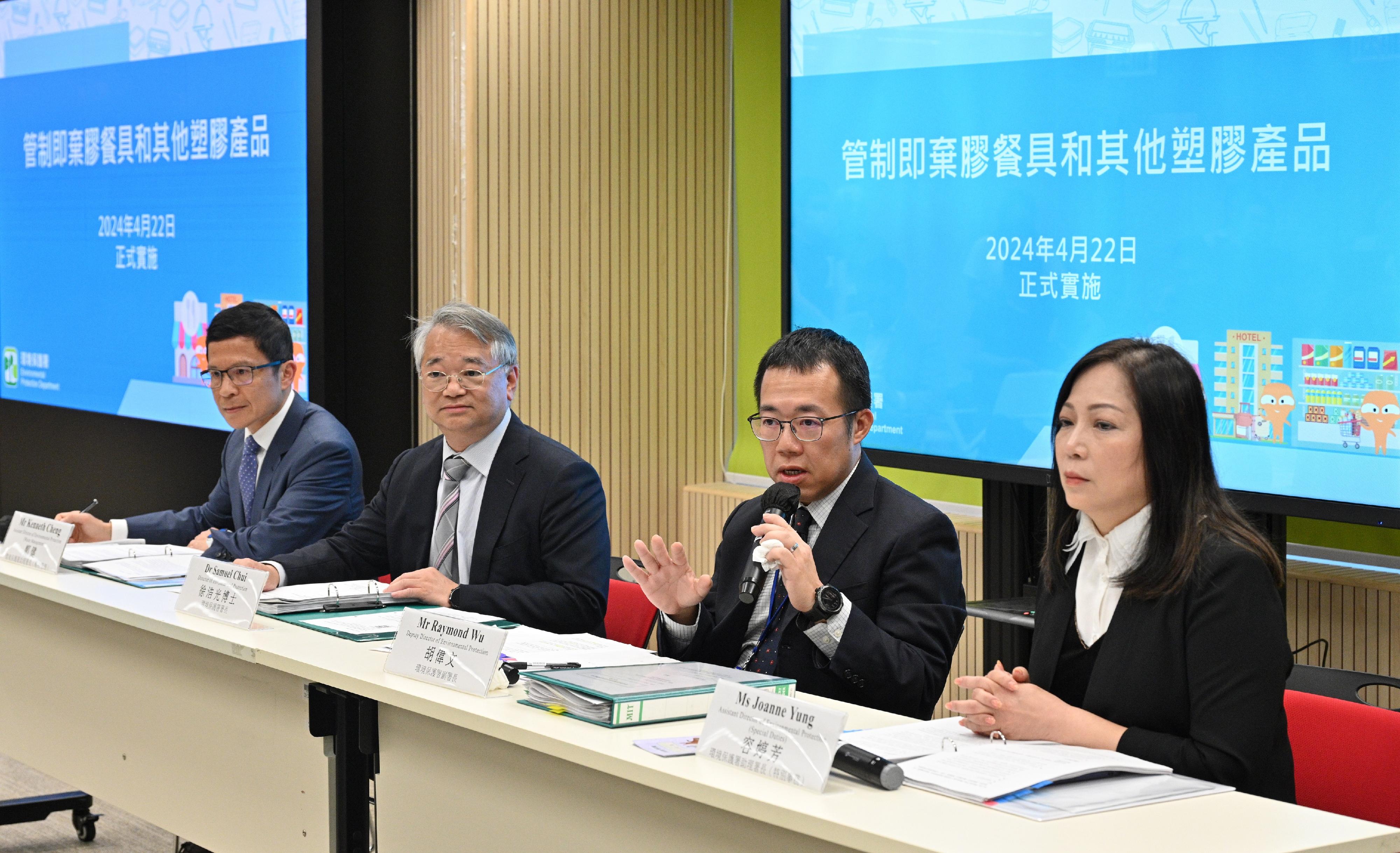Arrangements for adaptation period under regulation of disposable plastic tableware and other plastic products announced (with photos)
******************************************************************************************
At a briefing session today, the Director of Environmental Protection, Dr Samuel Chui, said that since the passage of the relevant legislation by the Legislative Council last October, the EPD has been actively carrying out preparations and deployment plans for implementing the regulation. Upon the implementation of the new legislation, the EPD will adopt a progressive implementation model. During the six-month adaptation period, the EPD will arrange for staff to inspect relevant business premises, and will focus on promotion and education, as well as provide appropriate advice to help businesses to comply with the requirements under the new legislation. The EPD advises businesses to exhaust their stock of the regulated products within the adaptation period to avoid wastage, and source suitable alternatives as early as possible.
During the adaptation period, EPD officers will not take enforcement actions against non-compliant businesses. At the early stage of the adaptation period, the EPD will arrange for staff to proactively inspect 20 000 eateries and 20 000 retail stores as well as hotels and guesthouses in Hong Kong, and focus on publicity and education work. At a later stage of the adaptation period, the EPD will arrange for staff to visit those businesses which were found not yet compliant with the legislation, explain to them again the requirements of the legislation and give advice and information to them, with a view to helping them comply with the regulation after the adaptation period.
After the adaptation period, the priority of the EPD's implementation approach will continue to be education. If businesses are still found not complying with the legislation, the EPD will look into their individual circumstances and difficulties, and appropriate measures such as education, advice or warnings will be taken accordingly. For businesses with repeated non-compliance records, enforcement actions will be taken after taking into consideration the actual circumstances.
At the briefing session held today, the EPD briefed the press on a series of publicity and education work items for the trades and the public on the commencement of the new regulation and the readiness of the trades. Representatives from tableware suppliers and hotel toiletries suppliers were also invited to exhibit non-plastic disposable tableware products and hotel toiletries alternatives.
In order to help the trade and the general public to understand the regulation, the EPD has started a series of publicity and education work, including visiting 20 000 small and medium-sized eateries, distributing sector-specific pamphlets to 11 000 retail companies and 1 800 hotels and guesthouses, holding around 50 sectoral training sessions, and launching the "Cut Plastic Use" thematic website (www.cuttheplastics.hk) with a dedicated page providing the hotel industry with information about suppliers of hotel toiletries alternatives and their products. The EPD also distributed Announcements in the Public Interest; promotional videos, posters and advertisements for relevant trades through various channels, as well as actively issused infographics via online platforms to clarify misunderstandings among the community to enhance public understanding of the regulation.
In response to the catering trade's concern on alternatives, the EPD has engaged the Hong Kong Quality Assurance Agency since January 2022 to establish the Green Tableware Platform (www.greentableware.hk) to assist the trade in procuring compliant alternatives. The EPD is revamping the system with the introduction of a unique QR code for every product registered on the Platform, with a view to facilitating the trade's procurement. The suppliers could print the QR code on their products or products' packaging for the trades to recognise them as registered products.
Dr Chui said, "Plastic pollution has threatened the environment and ecology as well as human health. 'Plastic reduction' and 'plastic-free' have become an international consensus in recent years, and are also an international trend. Hong Kong also needs to keep up with the pace of being 'plastic-free'. The legislation doesn't target the general public, but only regulates the supply of products. There is no need for members of the public to worry about it. We will continue to help the trades adapt to the requirements of the new regulation, and appeal to members of the public to reduce the use of disposable plastic products, integrating the culture of 'plastic-and-disposable-free' into their daily lives."
Ends/Friday, April 12, 2024
Issued at HKT 17:20
Issued at HKT 17:20
NNNN








